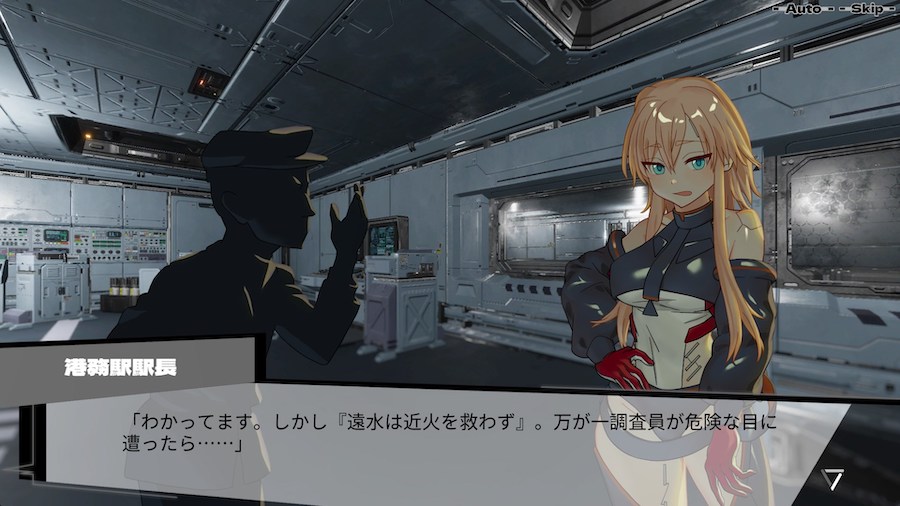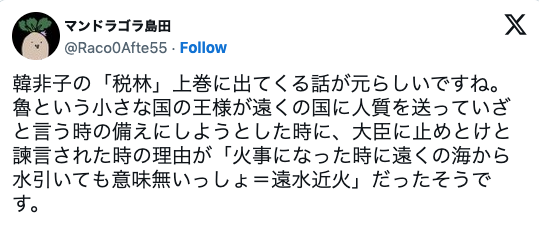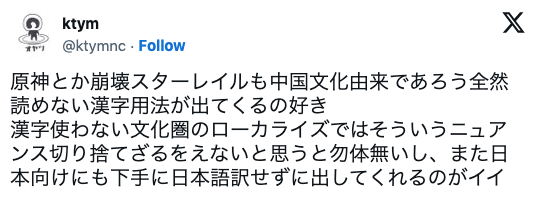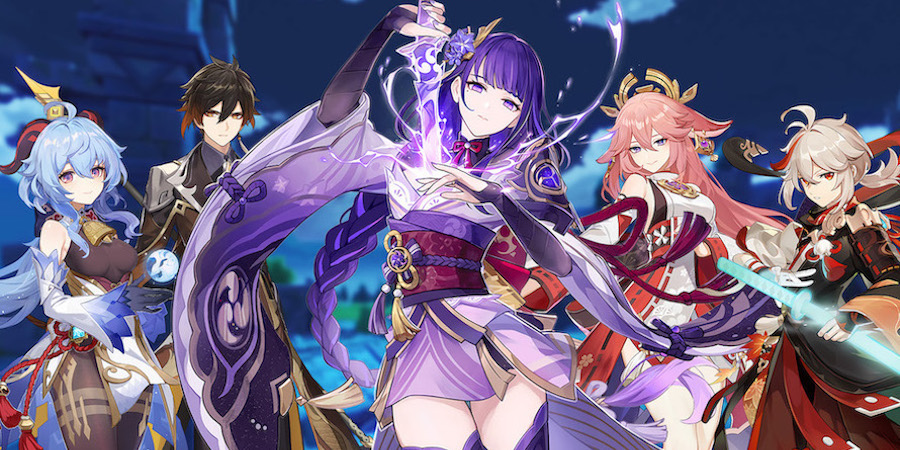A discussion around Japanese localizations of Chinese games has sprung up on X recently. Specifically, people have been commenting about how Chinese games such as Genshin Impact, Honkai: Star Rail and Ark Knights often contain idioms, which require knowledge of traditional Chinese literature to understand. It seems that some translators keep these Chinese idioms in their Japanese localizations, yet a discussion on X reveals that there are Japanese players who enjoy the learning opportunity.

The whole discussion started when English to Japanese game translator nicolith’s post gained attention on X yesterday, gaining 1.4 million views and over 4,000 retweets at the time of writing.
No-one expects to get a culture and history lesson while playing an erotic game. The game that nicolith was playing is apparently Colony City 27λ, a very explicit roguelike cyberpunk RPG (serious NSFW warning for the Steam page link!).
Game localizers often have to make trade-offs between directly translating the original and making the meaning accessible to their audience. This is especially true for references that rely on the player being familiar with certain cultural aspects. Chinese idioms are a good example of this, as their meanings are often difficult to understand without an explanation of the story behind them.

In the example that nicolith showed, the translator has actually found a way of writing out the idiom in Japanese that makes sense and enables the player to guess the meaning. In Chinese, the idiom is six characters (远水救不了近火, yuǎn shuǐ jiù bù liǎo jìn huǒ) and this saying is shortened to four when translated directly into Japanese: 遠水近火 (ensuikinka). However, this literally says, “far water near fire” and will still have Japanese players scratching their heads if they are not familiar with the idiom’s metaphorical meaning. It seems the translator of Colony City 27 λ decided to put this in a full Japanese sentence as, “Water from afar cannot extinguish a fire close at hand.”
Commenting on nicolith’s original post, one responder went the extra mile to explain the idiom’s origins.

Basically, this expression can be used to mean that a slow solution cannot resolve an urgent matter (Source: Cchatty). Further responses on the topic revealed that Japanese social media users who play Chinese games seem to be in favor of having these cultural idioms remain in the localization.

Post translation: I like how games like Genshin and Honkai: Star Rail come out with kanji that originate in Chinese culture and are completely unreadable (to Japanese people). It’s a shame to think that such nuances would have to be cut out when localizing for countries that don’t use kanji. I think for Japan it’s best that they include them without translating them badly into Japanese.

Although most liked that the original idiom was preserved, others were undecided as to which localization approach was best.

Others were just amused that the example was from an erotic game.

Overall, this thread on X highlighted the different ways localizers can deal with difficult-to-translate aspects of culture and language. For more discussion on game localization, check out our examination of the heated “Direct translation vs. Localization” debate that was fired up again after Sega’s PR piece on Like a Dragon’s Japanese-to-English localization back in January (Related Article).






I do like when Translations and Localizations try to keep things close to the idiom’s as much as they can or at least slightly expand upon it to make it more legible to the user. Changing the line to “Water from afar cannot extinguish a fire close at hand.” is a good idea and i do think that even if it had to be an idiom that was it’s original version that was not as easily understood, maybe having a link to click on and to explain the meaning of the idiom and a more easily explained version of it, could suffice.